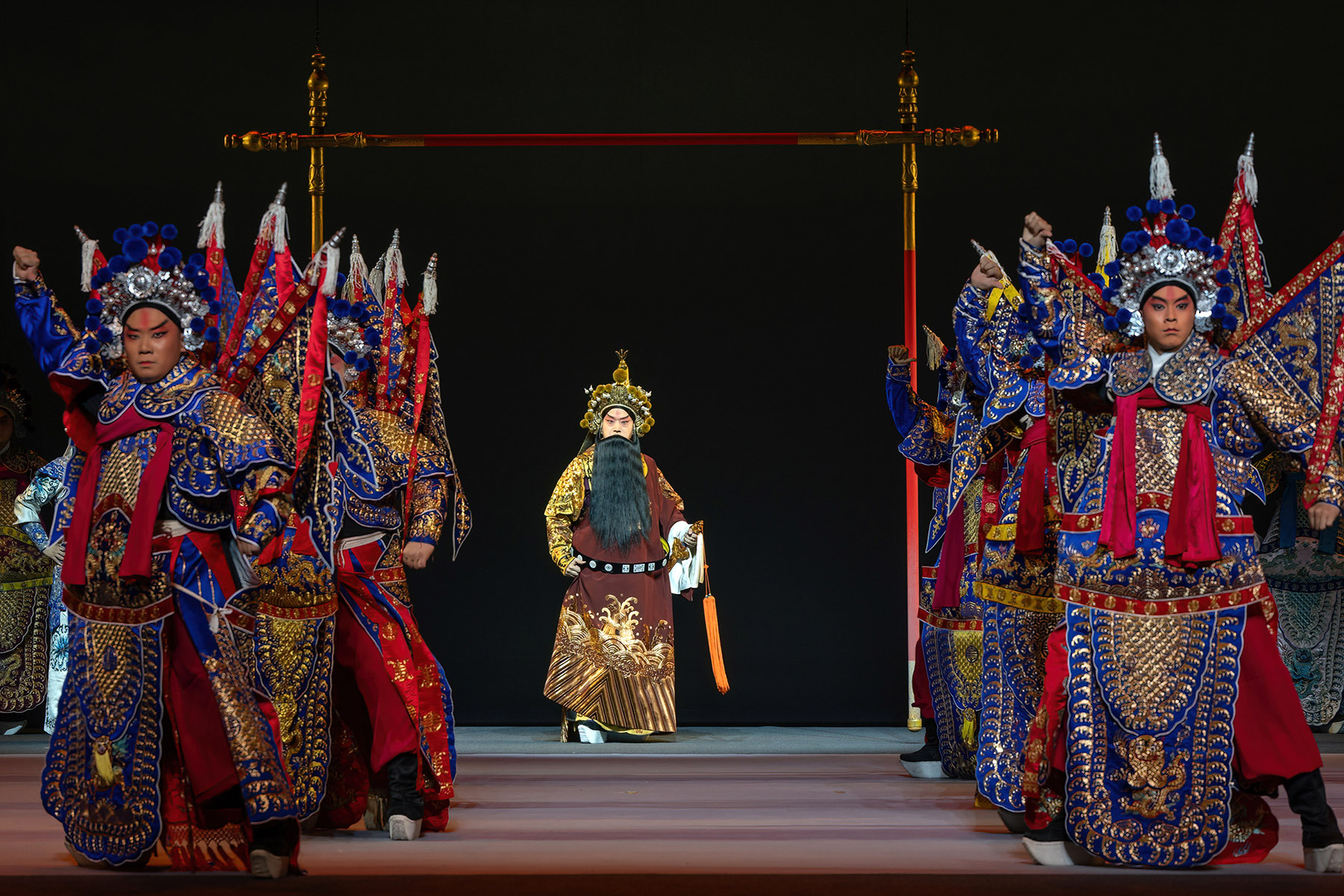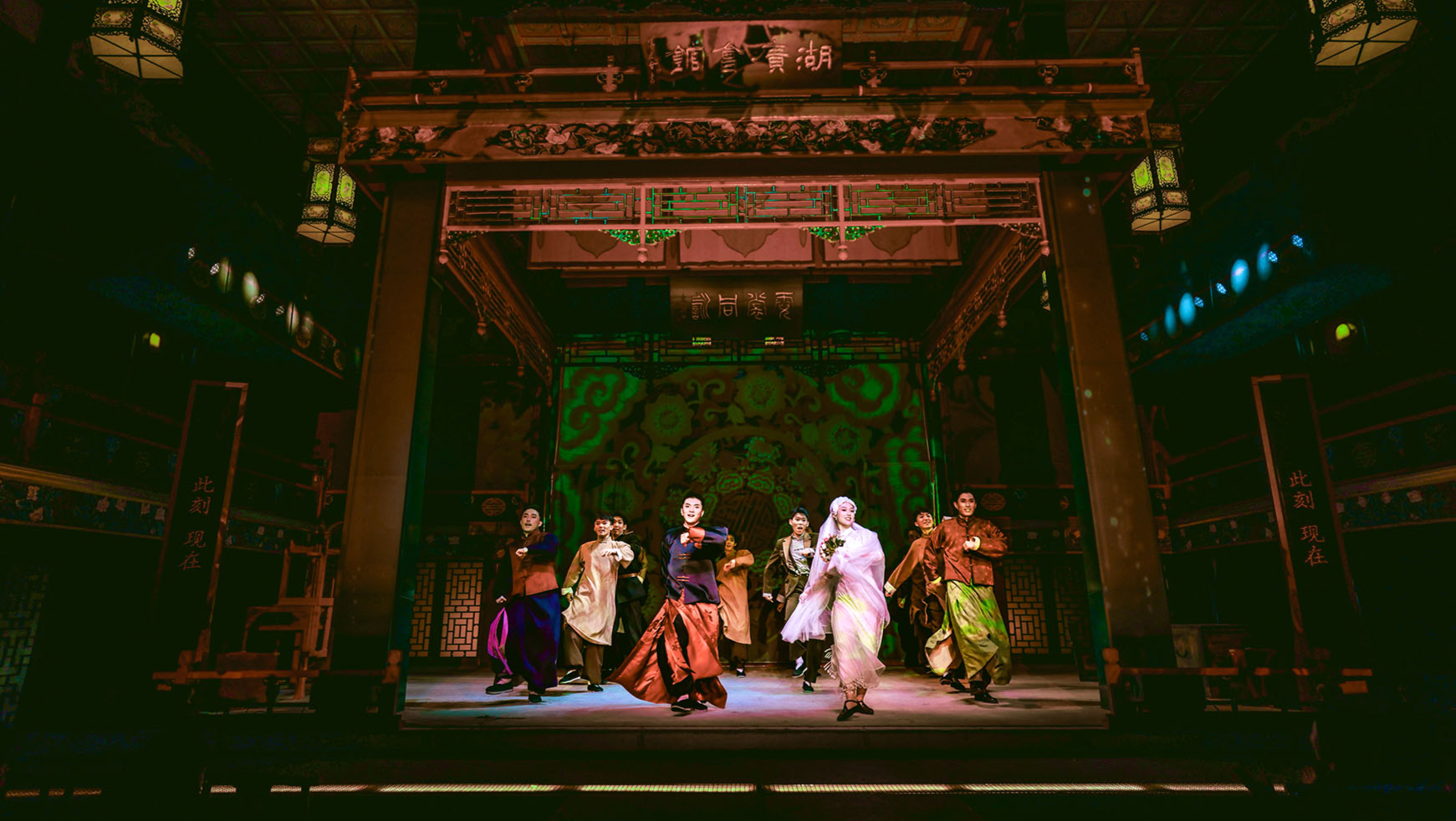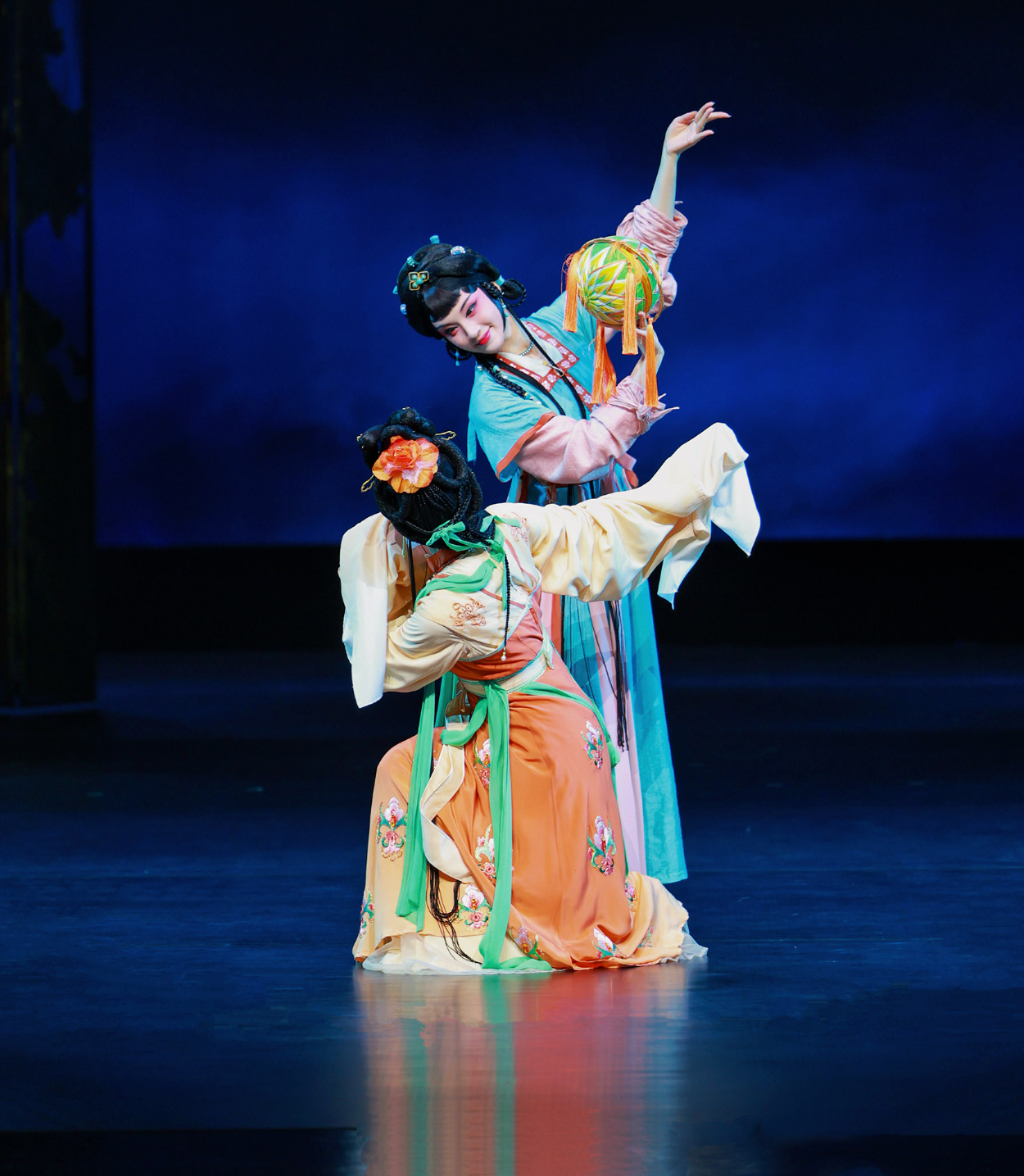Chinese opera director brings a contemporary perspective to a classic art form, injecting vitality and modernity to attract younger generations, Chen Nan reports.

Traditional Chinese opera, with its ornate costumes, stylized movements, and centuries-old stories, may seem worlds apart from the energy of today's youth culture. Yet, in the hands of director Li Zhuoqun, this ancient art form has found an unexpected vitality.
With a perfect blend of respect for heritage and a bold eye for innovation, Li is proving that traditional Chinese opera can be more than a relic of the past. It can be transformed into a vibrant stage where timeless emotions are expressed in fresh, relevant ways.
"I've always considered traditional Chinese opera as something much more than just a nostalgic art form," Li says. "It has so much beauty, drama and power. Why can't it be modern too? Why can't it speak to today's world?"
READ MORE: Patriotic Peking Opera takes to the stage
In collaboration with the National Centre for the Performing Arts, Li's latest Peking Opera production, Yan Zhenqing, premiered on Wednesday, featuring artists from the Jingju Theater Company of Beijing.
Set against the turbulent backdrop of the An-Shi Rebellion (755-763) during the Tang Dynasty (618-907), the production tells the story of Yan Zhenqing, a man who made the ultimate sacrifice for his country. Renowned for his calligraphy works, it's Yan's courage on the battlefield, as well as his stand against corruption at 75, that deeply resonate with modern audiences.
With a dazzling stage design and the support of cutting-edge multimedia technology, Li brings this iconic historical figure to life, creating a visual feast that enhances the drama while honoring the core traditions of Peking Opera.
The production also pays homage to the distinctive performing styles of Peking Opera's greatest masters, including the Mei school and the Tan school. The cast's performances showcase the rich diversity within the tradition. For example, Zhang Jianfeng, known for his Xi school style, brings a depth and emotional resonance to his performance, while Ma Botong, with his Tan school training, offers sharp, commanding vocals that echo the energy of heroic figures. In contrast, Qiu Shi's Yu school delivery evokes rustic simplicity and graceful dignity.
Among the dan (female) roles, Dou Xiaoxuan's interpretation of the Mei school is regal and dignified, while Wang Qian's performance, with the Zhang school's fluidity and charm, exudes a youthful, playful energy. Zhang Zixi, representing the Cheng school, is captivating, delivering a poignant and subtle performance that evokes sorrow and tenderness.
"Though the basic melodies remain consistent, each school brings a unique flavor to the performance," says Li. "It's a conversation between tradition and innovation. Every performance, every voice, adds a new layer to tradition."

Li's approach hasn't gone unnoticed by younger audiences. Yan Zhenqing has drawn praise from those who may not have normally engaged with Peking Opera.
"I didn't expect to be so moved by it," wrote an audience member on the social media platform, RedNote. "The visuals were stunning, and the story felt so relevant to today. It was like seeing something old but made new again. I could really connect with it."
Another audience member shared: "I always thought traditional Chinese opera was too formal and old-fashioned. But after seeing this production, I realized it's a living art form, and it speaks to my generation, too."
Li, who was introduced to traditional Chinese opera by her family in Linfen, Shanxi province, has been part of the Jingju Theater Company of Beijing since graduating from the National Academy of Chinese Theatre Arts in 2011. When she first began working with the company, the theater had not hired a new director in years. The company was collaborating with famous directors, but Li's breakthrough came when the company's president asked her a pivotal question: "What can you bring to the table to compete with these big-name directors?"
"That challenge was a turning point," recalls Li. "He made it clear that Peking Opera wasn't just about artistic achievement on stage, it also depended on attracting audiences and selling tickets."
Her first major directing opportunity came in 2013 with Yan Xijiao, a 70-minute Peking Opera production based on the classic Chinese novel, The Water Margin (Outlaws of the Marsh). The opera was a departure from large-scale, high-budget shows, focusing on smaller theaters with a simpler plot and fewer performers. It proved to be a hit, especially among younger audiences, and was staged more than 60 times nationwide.
"People my age and younger could relate to Yan Xijiao because it spoke to their emotions," Li, 39, says. "The creative team was mostly born in the 1980s and 90s, as were the audiences. We shared a similar sense of what was important in a story."
Li's journey from student to acclaimed director has been as unconventional as the productions she directs. Her chic, modern aesthetic, coupled with her bold approach to opera, has won her fans across generations. She gained popularity on social media, where her behind-the-scenes glimpses and thoughtful reflections on art drew thousands of followers, particularly young people.
Her approach to traditional Chinese opera has also sparked diverse opinions. Some traditionalists applaud her efforts to keep the art form relevant by blending modern elements with classical techniques, arguing that her innovative methods bring new energy and attract younger audiences. However, others believe her emphasis on multimedia and contemporary visuals compromises the purity of the traditional style.

Li's goal is clear — she wants audiences to experience the beauty of traditional Chinese opera, first and foremost. She hopes to spark curiosity and appreciation for the art form.
"I'm not trying to erase tradition," she says. "I'm trying to make it speak the language of today's audience. Young people connect with emotional stories, and that's what traditional Chinese opera has always been about. It's a universal experience. I want to show them that traditional Chinese opera can be exciting, relevant and meaningful."
Li's ability to blend tradition and modernity was also showcased in her directorial debut of the Chinese musical Till We Meet Again, which premiered earlier this year. The production is a murder mystery featuring a young cast. The story is set around a Peking Opera troupe in Beijing around a century ago. Many audience members, around the same age as the performers, shared their thoughts on social media and offered feedback that has inspired the creative team.
"I'm trying to make a platform where young voices can thrive, where performers and audiences can interact, and where old art forms speak to the hearts of all generations," Li explains.
"Turning 40 this year, I feel a stronger commitment to grounding my work in Chinese opera's rich traditions. At the same time, I want it to resonate with younger generations, infusing it with modern elements while staying true to its roots. The challenge is to preserve the essence of the art form while ensuring audiences today can relate," she adds.
ALSO READ: Patriotic Peking Opera takes to the stage
Li's latest Kunqu Opera production, Age of Splendour, set to be staged at the China Shanghai International Arts Festival on Oct 15 and 16, also features a young cast. The sixth-generation artists of the Zhejiang Jingkun Art Centre, most of whom were born after 2000, bring a new energy to this 600-year-old art form.
The story revolves around Shangguan Wan'er (664-710), China's female prime minister and a brilliant poet during the Tang Dynasty. The entire play spans three dynasties and 35 years, encompassing numerous key figures from the Tang Dynasty.
Ren Siyuan, the stage designer of Age of Splendour, who has worked with Li for years, says: "Audiences today expect a fresh theater experience. They no longer want the old or complex decorative structures they have seen before.
"Instead, we use elements such as folding fans that are both traditional and contemporary to blend preservation with innovation," Ren adds.
"We want to break down the barriers between tradition and the modern world, proving that traditional Chinese opera is not just for the past but has a vibrant future," he says.
Contact the writer at chennan@chinadaily.com.cn


